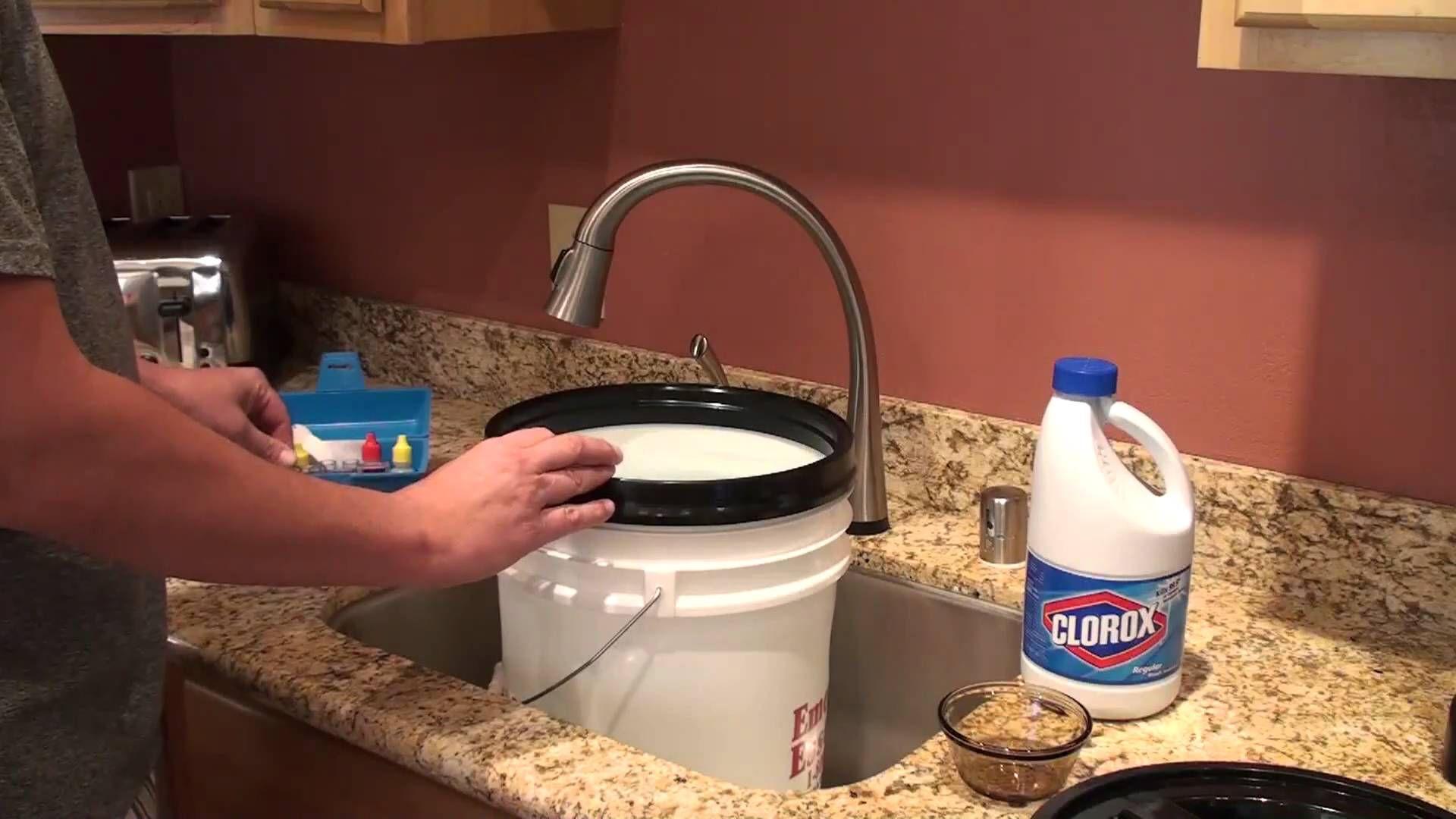

Articles
How To Store Tap Water Long Term
Modified: January 7, 2024
Learn how to store tap water for long term use with our helpful articles. Find tips and techniques to ensure your water stays safe and fresh.
(Many of the links in this article redirect to a specific reviewed product. Your purchase of these products through affiliate links helps to generate commission for Storables.com, at no extra cost. Learn more)
Introduction
In our daily lives, access to clean and safe drinking water is something we often take for granted. However, there may be situations where our regular water supply is disrupted or contaminated, making it essential to have a contingency plan in place. A simple and effective solution is to store tap water for long-term use.
In this article, we will explore the importance of storing tap water, the best containers to use, how to properly prepare the water for storage, and additional steps you can take to keep it fresh and safe. By following these guidelines, you can ensure that you have a reliable water supply during emergencies or times of scarcity.
Let’s dive deeper into the subject and discover the key steps to efficiently store tap water for long-term use.
Key Takeaways:
- Storing tap water long-term is crucial for emergencies and disruptions. Choose suitable containers, prepare and store water properly, and rotate and test it regularly to ensure a safe and reliable supply.
- Properly stored tap water ensures access to clean drinking water during unexpected events. Follow guidelines for container selection, preparation, storage, rotation, and testing to maintain its safety and quality.
Read more: How To Store Water Long Term
Importance of Storing Tap Water
Having a sufficient supply of water is crucial for our survival. While tap water is readily available in our homes, it is essential to prepare for unexpected events such as natural disasters, severe weather conditions, or water supply disruptions. By storing tap water, you can ensure access to clean drinking water during these challenging times.
There are several reasons why storing tap water is vital:
- Emergency situations: In case of emergencies like hurricanes, earthquakes, or floods, access to safe drinking water may be limited or completely cut off. Having stored tap water can be a lifesaver in such situations, providing hydration and sanitation.
- Water supply disruptions: Municipal water systems can sometimes experience interruptions due to maintenance work, infrastructure issues, or contamination. By having stored tap water, you won’t have to worry about not having access to clean water during these periods.
- Contamination concerns: There may be instances where your water supply gets contaminated due to chemical spills, pollution, or water treatment issues. Storing tap water ensures that you have a safe and reliable source of drinking water until the situation is resolved.
- Extended trips or outdoor activities: If you are planning a camping trip or embarking on an outdoor adventure, having stored tap water allows you to have a portable and convenient water supply without relying on uncertain sources you may encounter along the way.
By understanding the importance of storing tap water, you can take proactive measures to ensure your and your family’s well-being during unforeseen water scarcity or emergencies.
Containers for Storing Tap Water
Choosing the right containers for storing tap water is crucial to maintaining its quality and preventing any potential health risks. Here are some factors to consider when selecting containers:
- Food-Grade Material: Look for containers made of food-grade materials such as high-density polyethylene (HDPE) or polypropylene (PP). These materials are safe for storing drinking water and do not leach harmful chemicals into the water.
- Airtight and Leakproof: Ensure that the containers are airtight and leakproof to prevent any contamination or evaporation of the stored tap water. This will help maintain its quality over an extended period.
- Dark or Opaque: Opt for containers that are dark or opaque in color as they help block out light. Exposure to light can promote the growth of algae and bacteria in the water, affecting its taste and quality.
- Secure Lids: Containers with secure and tight-fitting lids are essential to keep the water free from dust, insects, and other contaminants. Make sure the lids are easy to open and close for convenient access.
- Size and Portability: Consider the size of the containers based on your needs and available storage space. It is also beneficial to choose containers that are easy to handle and transport, especially during emergencies or outdoor situations.
Some suitable container options for storing tap water include:
- BPA-free plastic containers: Look for containers specifically labeled as BPA-free to avoid any potential health risks associated with this chemical compound.
- Glass jars or bottles: Glass containers are a safe option for storing tap water, as they do not interact chemically with the water. However, ensure that they have secure lids to prevent breakage and leakage.
- Water storage barrels or drums: These larger containers are ideal for long-term storage and are often used in emergency preparedness. They typically come with airtight lids and can store a significant amount of water.
- Clean water jugs: Water jugs specifically designed for long-term storage are available in various sizes and are easy to handle and pour.
Remember to clean and sanitize your chosen containers before storing tap water to ensure that no contaminants are introduced to the water during storage.
By selecting the right containers, you can effectively store tap water while ensuring its quality and safety for future use.
Preparing Tap Water for Long-Term Storage
Before storing tap water for an extended period, it is essential to take certain precautions to maintain its quality and freshness. Here are the key steps to preparing tap water for long-term storage:
- Use fresh tap water: Start with clean and fresh tap water from a reliable source. If there are any concerns about the water quality, consider using a water filter or purifier to remove impurities and contaminants.
- Sanitize the containers: Thoroughly clean the storage containers with hot, soapy water and rinse them well. Then, sanitize them by filling them with a solution of 1 teaspoon of unscented household bleach mixed with 1 gallon of water. Allow the containers to sit for a few minutes, then rinse them thoroughly with clean water. This sanitization step helps eliminate any harmful bacteria or microbes that may be present.
- Filling the containers: Fill the sanitized containers with tap water, leaving about an inch of headspace at the top. This extra space allows for expansion if the water freezes in cold temperatures.
- Sealing the containers: Ensure that the containers are tightly sealed with their respective lids to prevent any contamination or evaporation of the stored tap water.
- Label and date: Use a waterproof marker to label each container with the date of storage. This will help you keep track of the freshness and rotation of the stored tap water.
It is important to note that tap water can be safely stored for a long time if properly prepared and stored in suitable containers. However, it is recommended to periodically refresh the stored water to ensure its quality and taste.
By following these preparation steps, you can store tap water effectively and have a reliable source of clean drinking water when needed.
Store tap water long term by using clean, airtight containers made of glass or food-grade plastic. Keep the containers in a cool, dark place to prevent bacterial growth and maintain water quality. Rotate and replace the water every 6-12 months to ensure freshness.
Storing Tap Water Properly
After preparing tap water for long-term storage, it is crucial to store it properly to maintain its freshness and safety. Here are some important guidelines to follow:
- Store in a cool and dark place: Find a cool and dark location to store the containers of tap water. The area should be away from direct sunlight and sources of heat. Exposure to sunlight and high temperatures can degrade the quality of the water and promote the growth of algae and bacteria.
- Avoid areas with chemicals: Keep the stored tap water away from any chemicals, such as cleaning agents, fuels, or solvents. These substances can potentially contaminate the water and make it unsafe for consumption.
- Avoid storing near strong odors: The stored tap water can absorb strong odors from nearby substances, affecting its taste and quality. Avoid storing it near items with strong smells, such as cleaning products, detergents, or food with pungent aromas.
- Monitor temperature fluctuations: Extreme temperature fluctuations can impact the quality of the stored tap water. Avoid storing it in areas that experience significant temperature changes, such as garages or sheds, as this can lead to the growth of bacteria or cause the containers to expand or contract.
- Organize and protect from damage: Arrange the containers in an organized manner to prevent accidental damage. Ensure that they are protected from any potential impact or falling objects that could cause breakage or leakage.
By storing tap water properly, you can maintain its freshness and safety, ensuring a reliable source of clean drinking water for an extended period.
Remember to periodically check and inspect the stored tap water for any signs of contamination or deterioration. If you notice any unusual odor, discoloration, or particles in the water, it is best to discard it and replace it with fresh tap water.
Following these guidelines will help you store tap water effectively and have a readily available supply of clean drinking water whenever the need arises.
Read more: How To Store Water Long Term Safely
Rotating Stored Tap Water
While properly stored tap water can remain safe to drink for an extended period, it is still essential to rotate the stored water to ensure its freshness and quality over time. Here is why rotating stored tap water is important:
Prevention of stagnation: Over time, stagnant water can develop an unpleasant taste and odor. By rotating the stored tap water, you can prevent the water from becoming stagnant and ensure a refreshing and palatable drinking experience.
Microbial growth prevention: Even with proper storage, there is a chance that some microbes or microorganisms may enter the water storage containers. By rotating the stored tap water, you minimize the risk of microbial growth and potential health hazards associated with it.
Here are some effective ways to rotate stored tap water:
- Regular consumption: Incorporate the habit of regularly consuming and refilling the stored tap water. This will ensure you use the oldest water first, keeping the supply fresh.
- Plan for a specific duration: Determine the duration for which you want to store tap water, such as six months or a year. Make a note of the storage date on each container, and ensure you use and replace the water within that timeframe.
- Set reminders: Use reminders or alarms to prompt you to rotate your stored tap water at regular intervals. This will help you stay on top of the rotation schedule and maintain a fresh supply.
- Use and replace: Whenever you need to utilize the stored water, make it a practice to replace it with fresh tap water immediately. This way, you ensure you always have a continuous rotation and supply of fresh water.
- Label and track: Maintain a record or marking system to keep track of the rotation dates for each container. This will help you easily identify which containers need to be consumed or replaced first.
By regularly rotating the stored tap water, you can ensure its freshness, prevent stagnation and microbial growth, and have a reliable supply of clean drinking water at all times.
Remember to inspect the containers and the stored water for any signs of contamination or deterioration during the rotation process. If you notice any changes in color, taste, or odor, it is best to discard the water and refill with fresh tap water.
Following these practices will help you maintain a consistently fresh supply of tap water for your long-term storage needs.
Testing Stored Tap Water
Periodically testing the quality of your stored tap water is crucial to ensure its safety and suitability for consumption. Even with proper storage practices, there is a chance that the water may degrade over time. Here are some key reasons why testing stored tap water is important:
Verification of water quality: Testing allows you to verify that the stored tap water remains safe to drink and has not been contaminated during storage.
Detection of chemical or microbial changes: By testing the water, you can identify any changes in chemical composition or the presence of harmful microbes that may have developed over time.
To properly test the stored tap water, consider the following options:
- Home water testing kits: Home test kits are readily available and provide a convenient way to check the quality of your tap water. These kits usually come with test strips or vials that can detect common contaminants such as chlorine, pH levels, and bacteria.
- Lab testing: If you want a comprehensive analysis of your stored tap water, you can send samples to a certified laboratory for testing. They can provide detailed results and identify any potential contaminants or changes that may have occurred.
When testing stored tap water, pay attention to the following parameters:
- Purity and clarity: Check for any cloudiness, discoloration, or floating particles in the water.
- Odor and taste: Assess the smell and taste of the water. Any unusual or foul odors may indicate contamination.
- pH levels: The pH level of the water should remain within the acceptable range for drinking water (usually between 6.5 and 8.5).
- Chemical contaminants: Test for common chemical contaminants such as chlorine, lead, pesticides, and heavy metals.
- Microbial contaminants: Check for the presence of harmful bacteria, viruses, or other pathogens that may have entered the water during storage.
By regularly testing your stored tap water, you can ensure its continued quality and safety. If any issues or concerns arise during testing, it is recommended to replace the stored water with fresh tap water and reevaluate your storage practices.
Remember to keep a record of the test results and the dates of testing for future reference. This will help you track the changes in water quality over time and make informed decisions regarding storage and consumption.
Testing stored tap water is an essential step in maintaining a reliable supply of clean drinking water and ensuring the well-being of you and your family.
Conclusion
Storing tap water for long-term use is a practical and essential part of emergency preparedness. By taking the time to properly store tap water, you can ensure access to clean and safe drinking water during periods of water scarcity, emergencies, or water supply disruptions.
In this article, we explored the importance of storing tap water and discussed the best containers for storage. We also discussed the necessary steps to prepare tap water for long-term storage, including sanitizing the containers and filling them with fresh tap water.
Additionally, we highlighted the significance of storing tap water properly, noting the importance of finding a cool and dark place to store the containers, avoiding areas with chemicals or strong odors, and monitoring temperature fluctuations.
We also emphasized the need to rotate stored tap water to prevent stagnation and microbial growth. Regularly consuming and replacing the stored water ensures a fresh supply and helps maintain its quality over time.
Furthermore, we touched on the importance of periodically testing the stored tap water to verify its safety and quality. Testing kits and laboratory analysis provide valuable insights into any chemical or microbial changes that may have occurred in the water.
In conclusion, storing tap water for long-term use is a proactive step we can take to ensure our water needs are met during unexpected events or situations. By following the guidelines discussed in this article, you can maintain a reliable supply of clean drinking water, safeguarding the well-being of yourself and your loved ones.
Remember, proper storage, regular rotation, and periodic testing are key to maintaining the freshness, safety, and quality of your stored tap water. Stay prepared, stay hydrated!
Frequently Asked Questions about How To Store Tap Water Long Term
Was this page helpful?
At Storables.com, we guarantee accurate and reliable information. Our content, validated by Expert Board Contributors, is crafted following stringent Editorial Policies. We're committed to providing you with well-researched, expert-backed insights for all your informational needs.
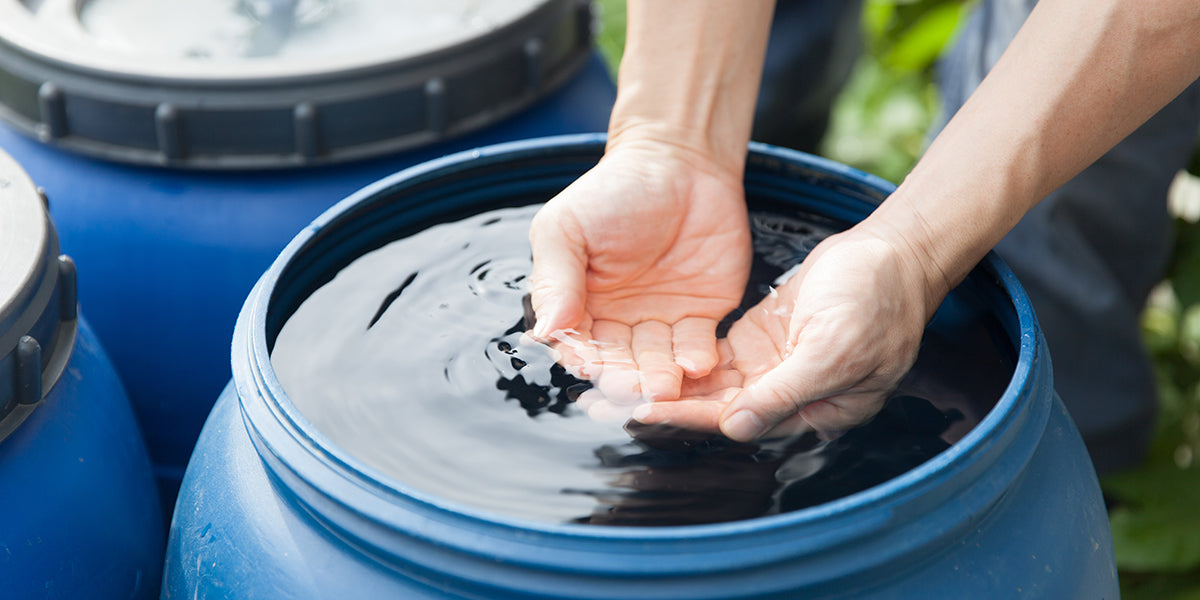
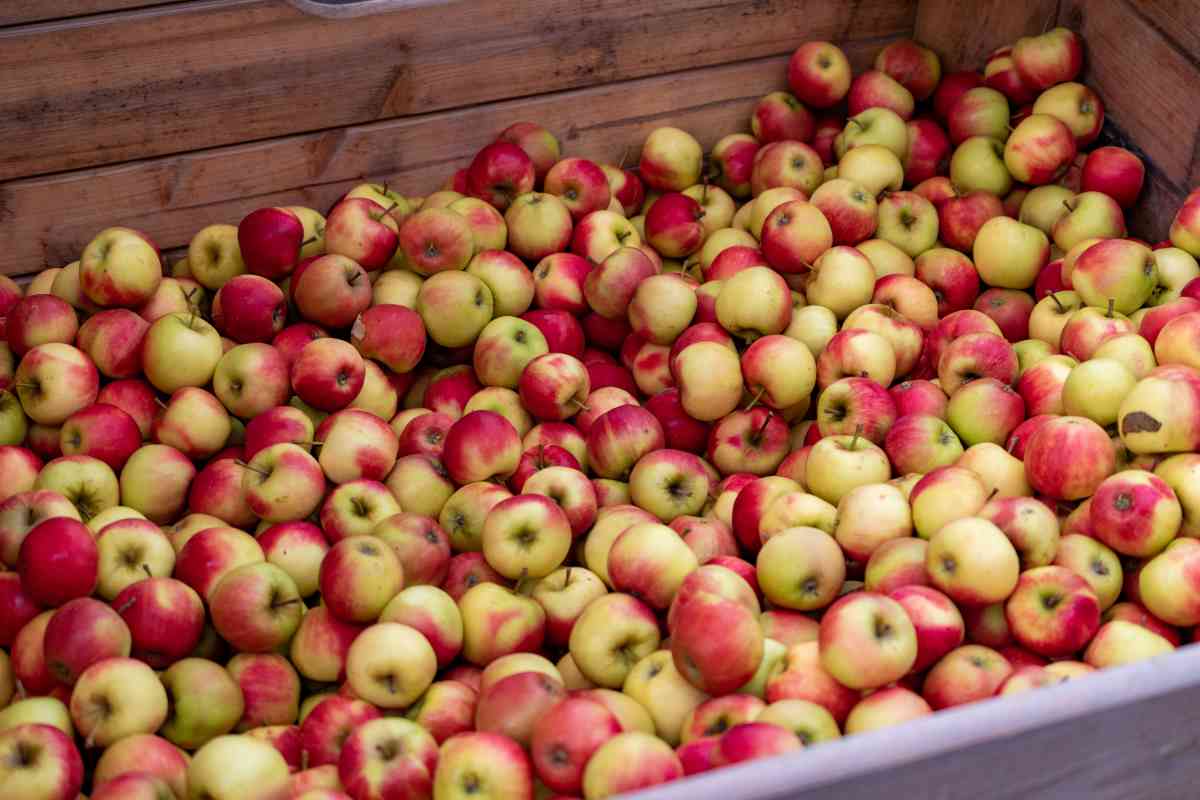
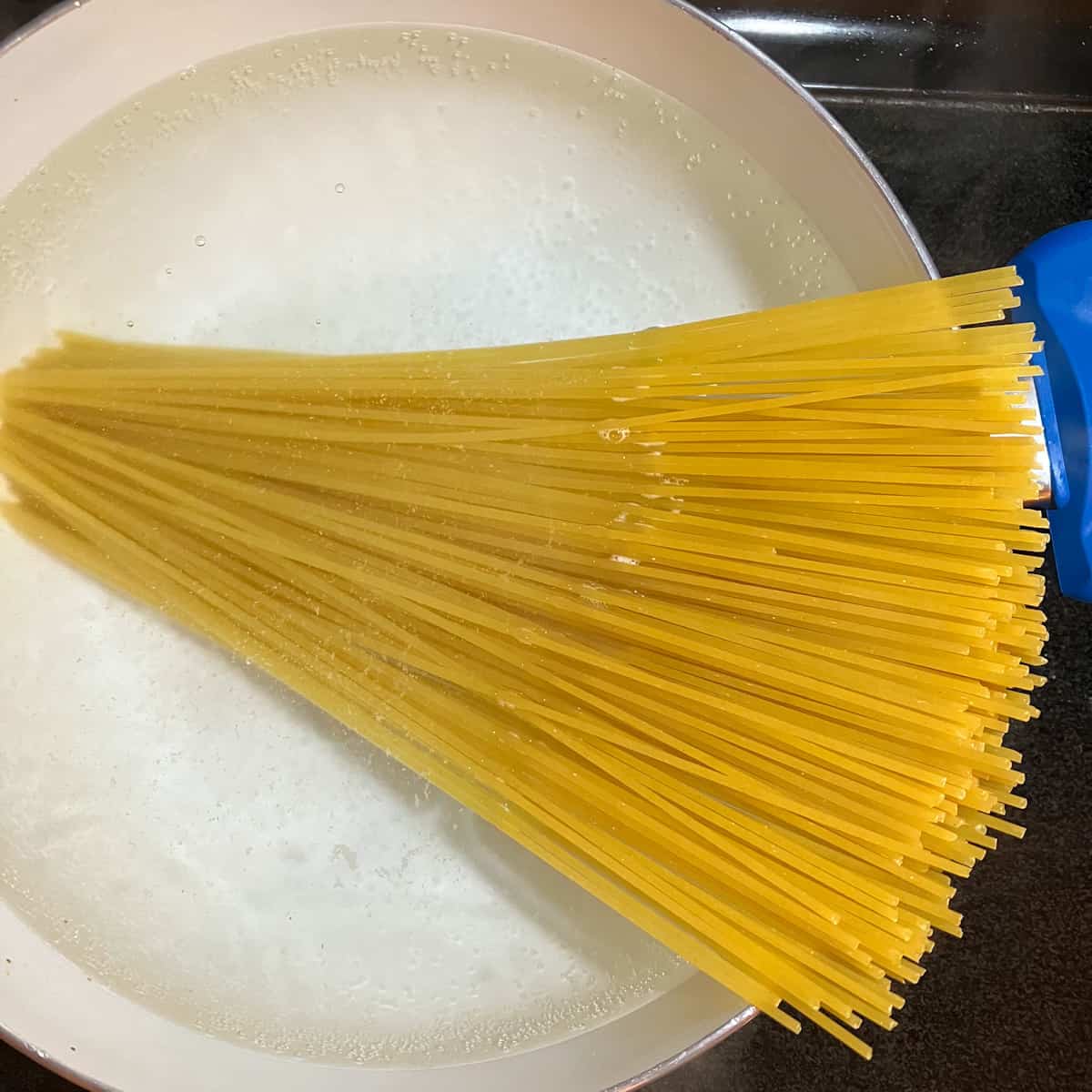
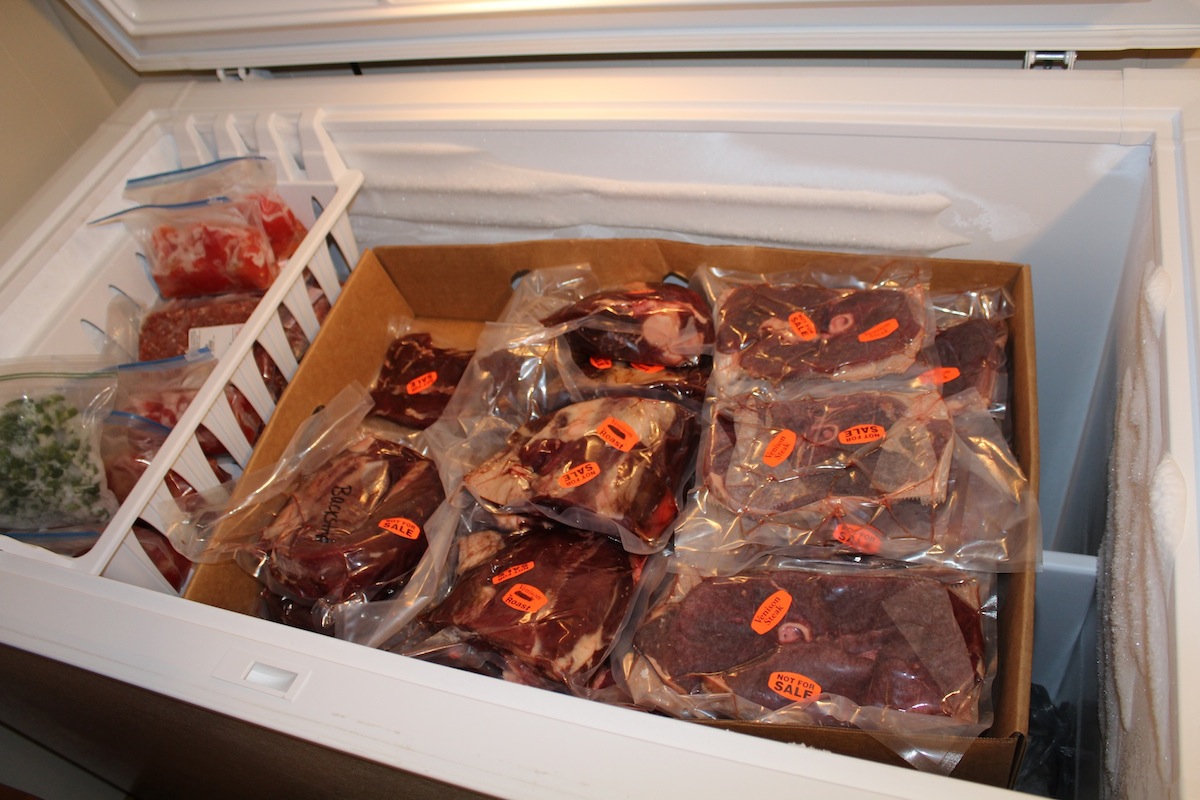

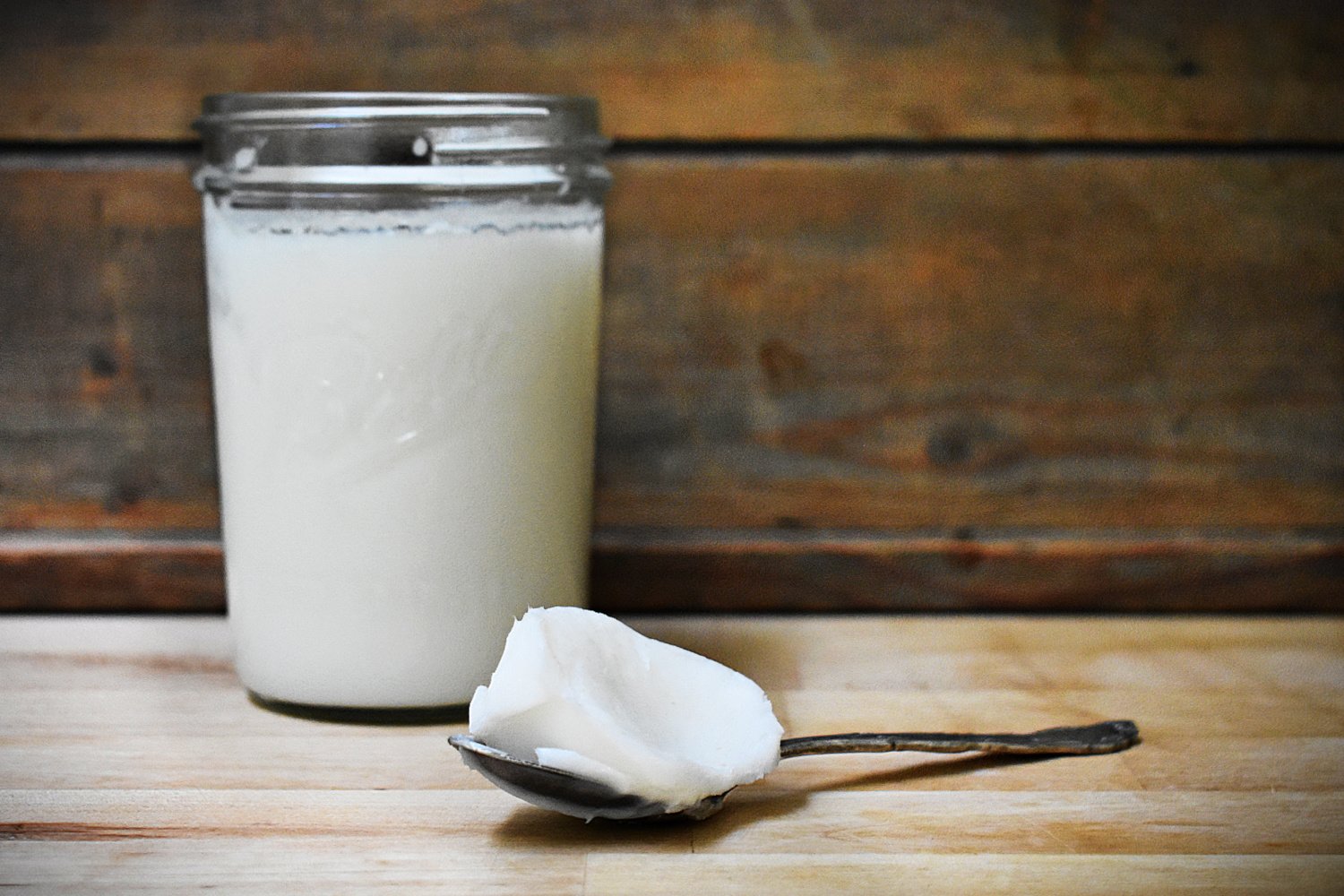

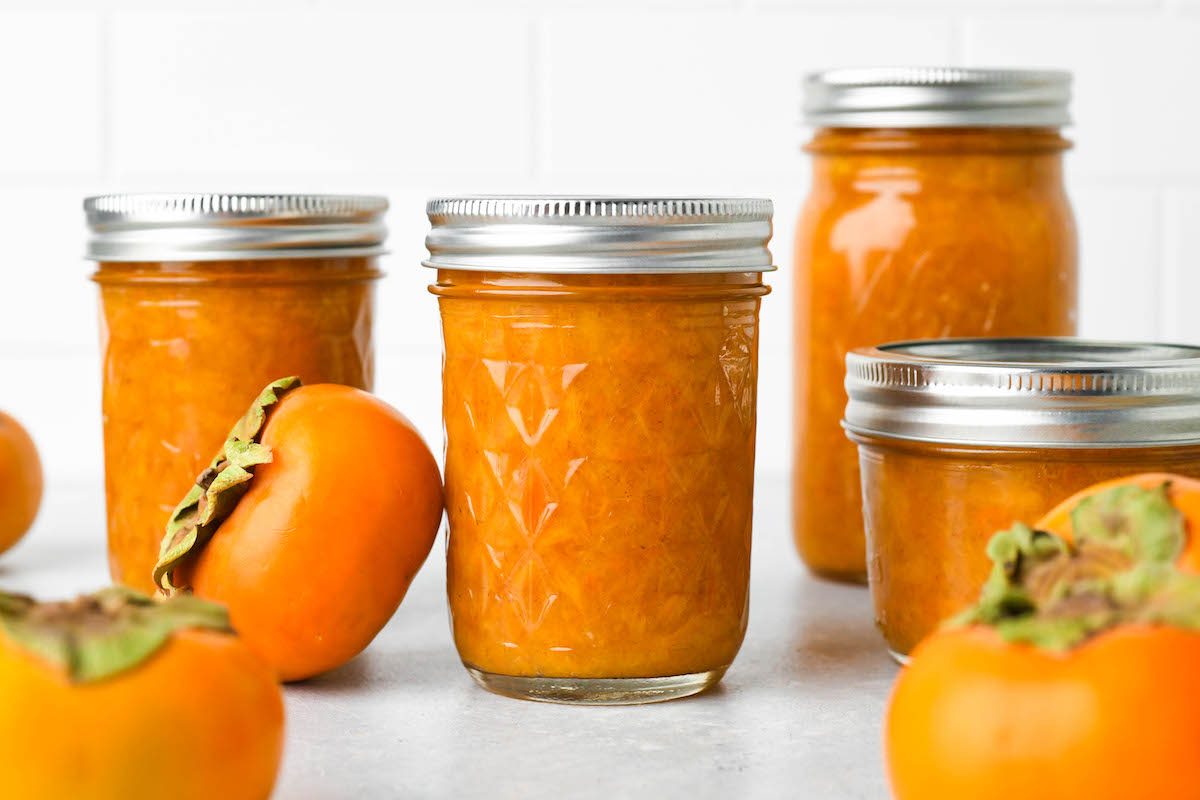

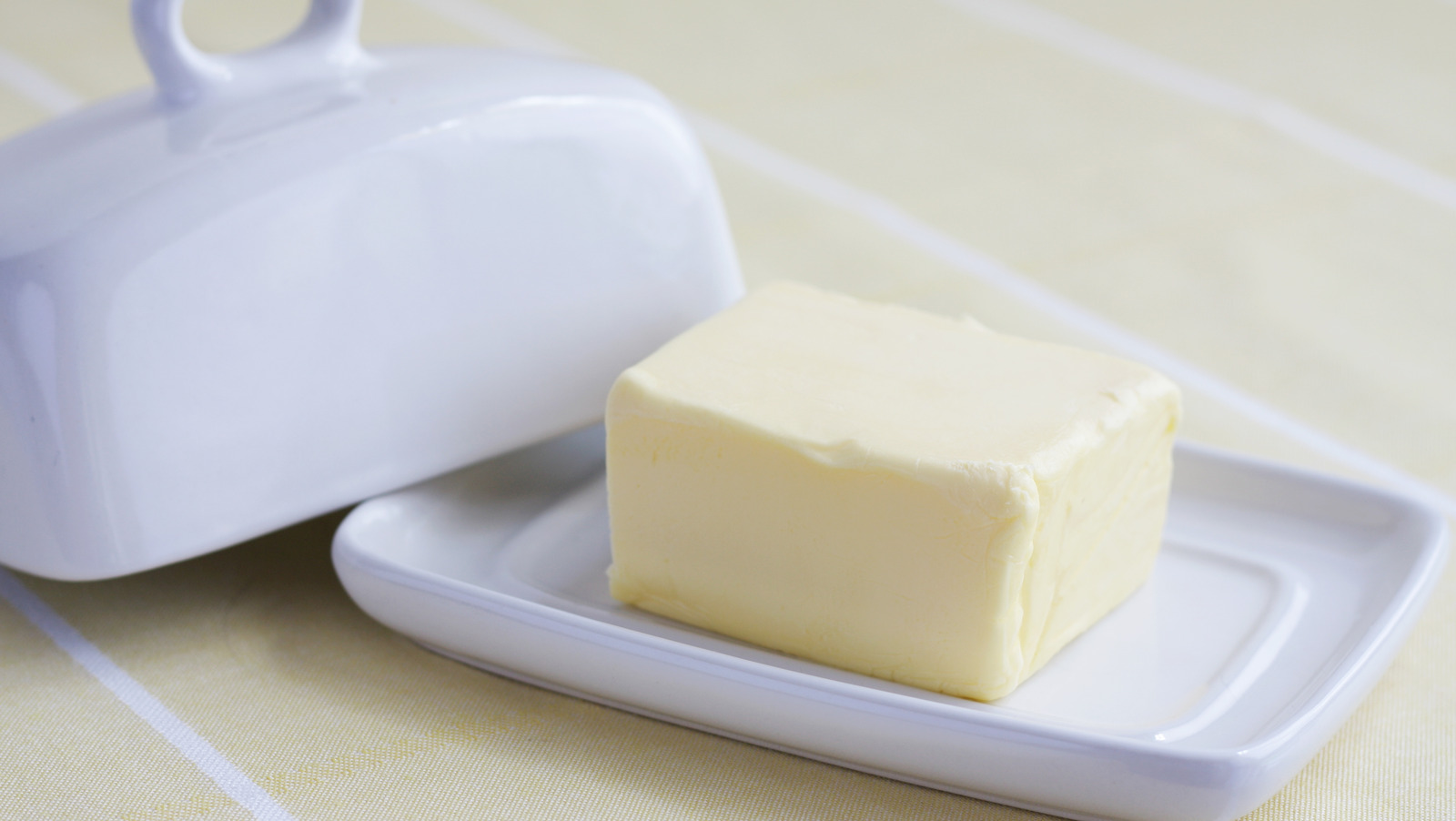
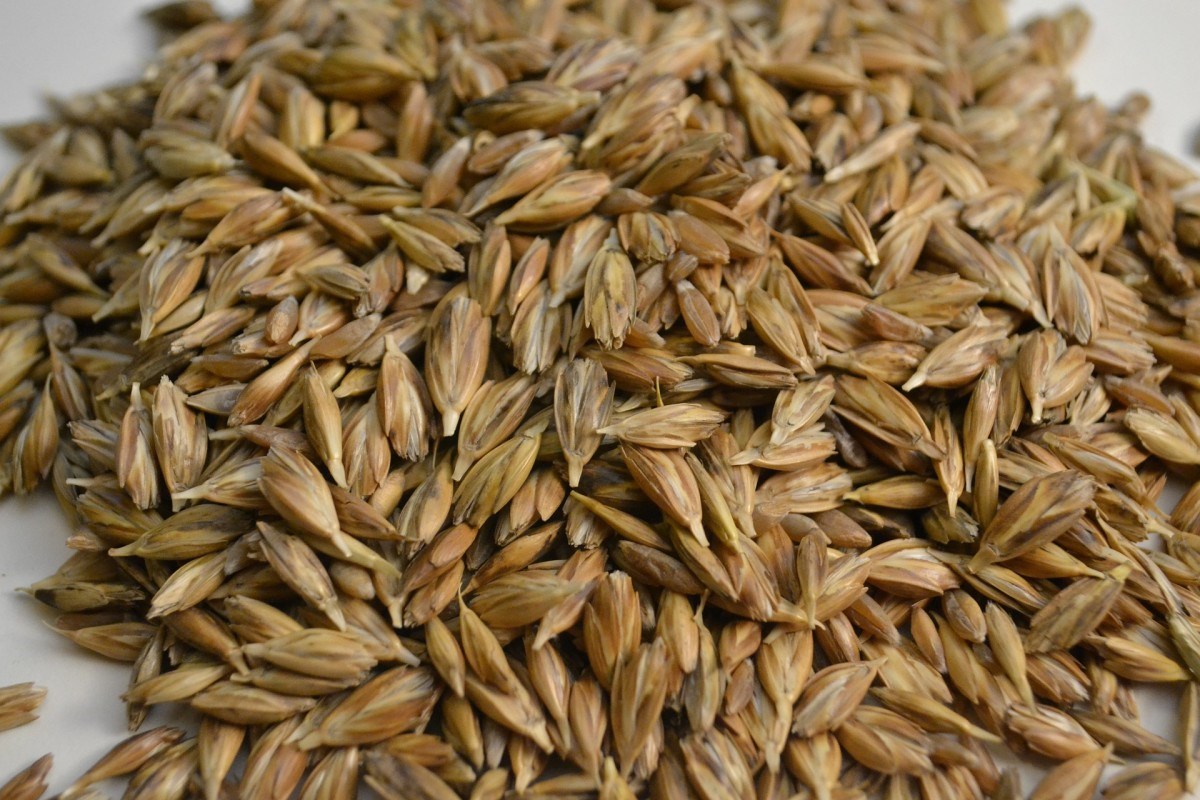

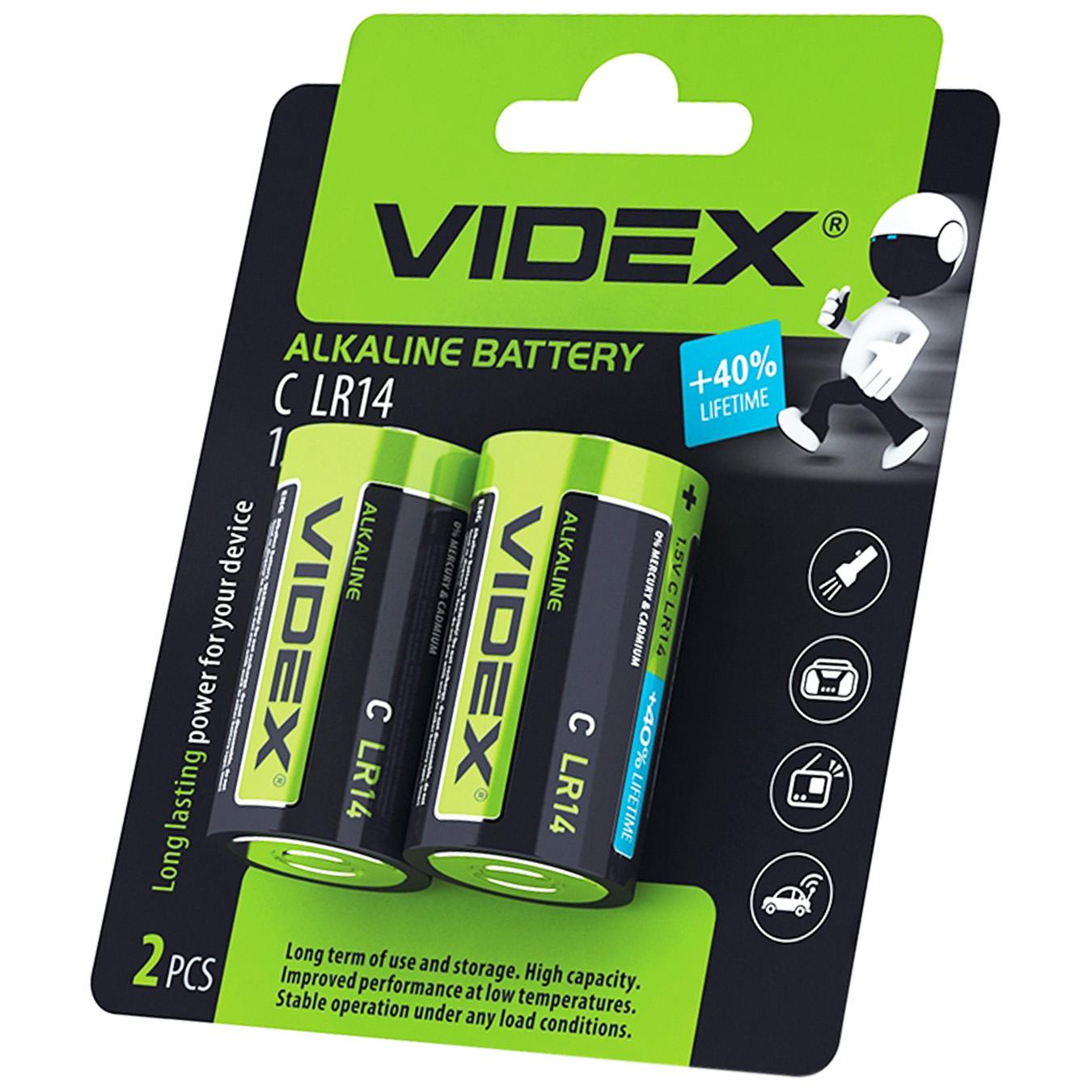


0 thoughts on “How To Store Tap Water Long Term”